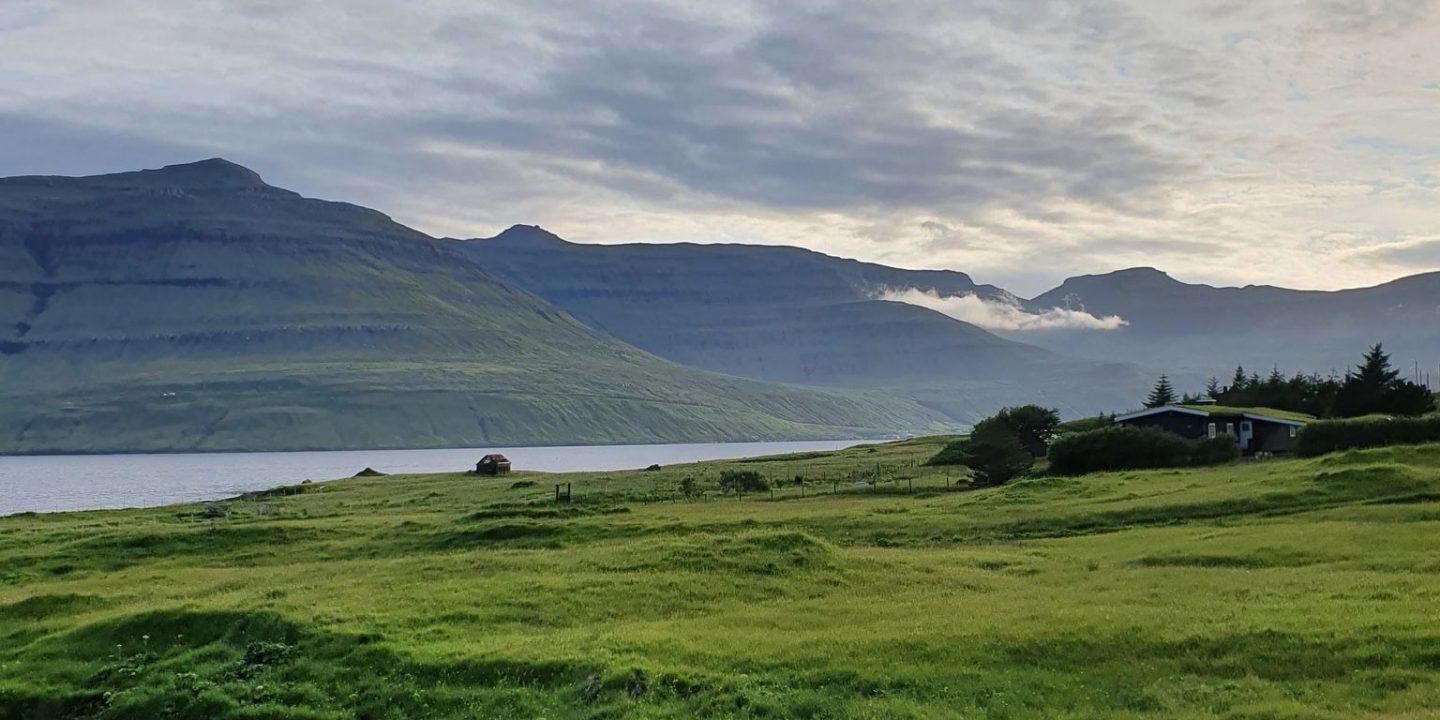Today is the 13th of December, as today I have chosen a different aspect of “diversity” namely the diversity of tasks a PhD-student at the Natural History museum can and have to do.
Being a PhD-student involves a rollercoaster of emotions and a very diverse, flexible, demanding and rewarding every day life. First and foremost, taking on such a task requires both motivation and hard work, and one should ideally be interested in science and interested in doing science. The PhD-project usually builds on skills you’ve established already as a MSc-students, but it often involves quite a lot more and requires development of new skills and knowledge.
A PhD degree at the Natural History Museum can be either 3 years or 4 years, and related to a project or not. Most PhD degrees at NHM are 4 years, where the forth year is regarded as a year devoted to “duty work”. This year is an extra year added to the normal 3-year degree, which involves doing different tasks not related to your own project but which should benefit both yourself and the museum, because it is paid by the museum. If one manages to do a little duty work each year, many students see this as an opportunity to work 4 year on a project which normally should take 3 years.
Diversity of tasks
There is a wide diversity of different tasks a PhD-student can do to fill the hours, and depending on planning, many students also like these different tasks. For some, it might be a challenge to find suitable tasks that actually provides hours in large numbers, and for this, the supervisor team and others in admin should be able to guide the student in the right direction. Among the different task one can do is for example lab work for others, field work, teaching, outreach with UTAD, social committee work, digitalization of the collections, supervision of BSc- and MSc-students to mention some.
The good thing about all these different tasks, is that the PhD-student will expand the toolbox and develop a lot of new skills. This is one of the main points with the duty work – that it should benefit the student. If the PhD-student really wish to pursue a career in teaching, it would be smart to get a lot of practice whenever possible. And if the student wish to learn new lab techniques or simply love to spend time in the lab, one can sign up for helping others which are not that keen on lab work.
Another good thing with the duty work solution is that you can help your research group with e.g field work, and benefit from it yourself (besides getting a lot of good karma). Helping your colleagues and your research group is something many wish to do, but if you are very busy with a demanding project, it might be difficult to find the time for anything else but the project. As such, duty work can be a beneficial thing for many, but one must not forget that the PhD-project itself can be stressful, so many also find the duty work tasks stressful. Again, planning is key! And this is also a skill one learn (sometimes the hard way) which can be added to the always expanding toolbox.
Examples from my duty work
Myself, I been very lucky with my duty work, and if done a lot of diverse and joyful tasks. I’ve been at the Faroe Islands helping out with fieldwork for Vetles MSc-project, I’ve been in Trondheim doing fieldwork with Torstens Artsdatabankproject, I’ve given lectures and contributed in the lab in BIOS5114 Molecular Evolution 4 years in a row, I’ve been part of both the Student Activity Committee and the welfare committee at NHM, I organize the FEZ Journal Club and I help out in my research group with translating (as the only native Norwegian in the group) to mention some. As per now, I have about 100 hours left, so these will be spent teaching BIOS4215 – Evolution and Systematics of Organismal Groups: The Animal Kingdom, and if there are more hours left, I will probably do some collection work.
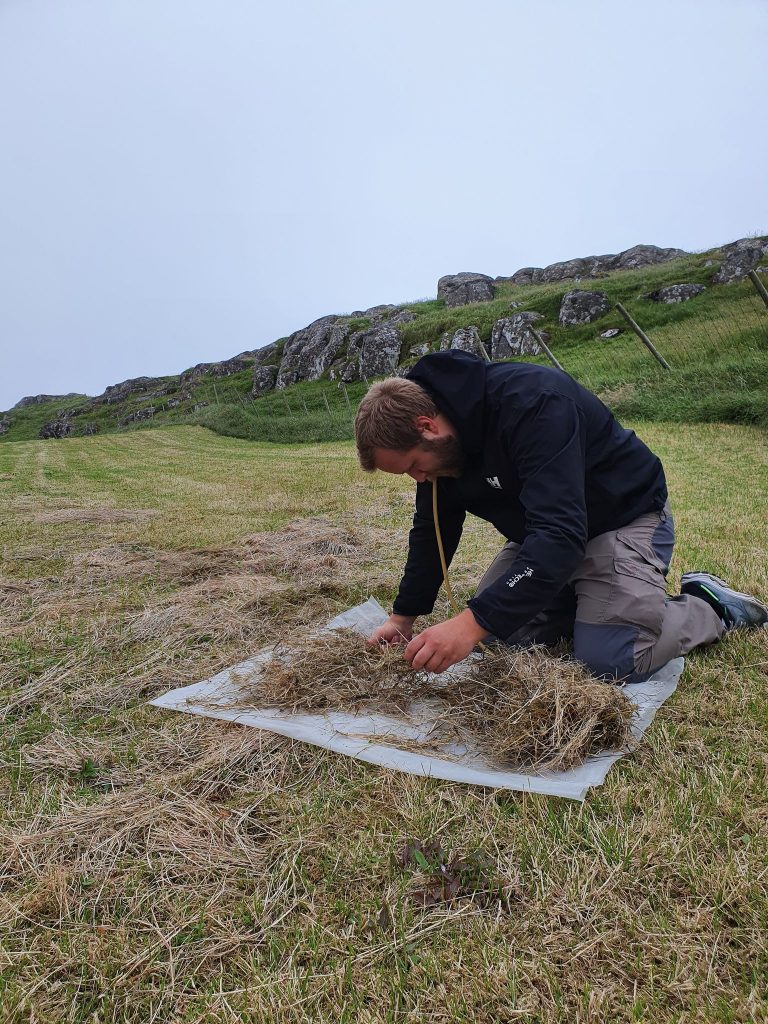
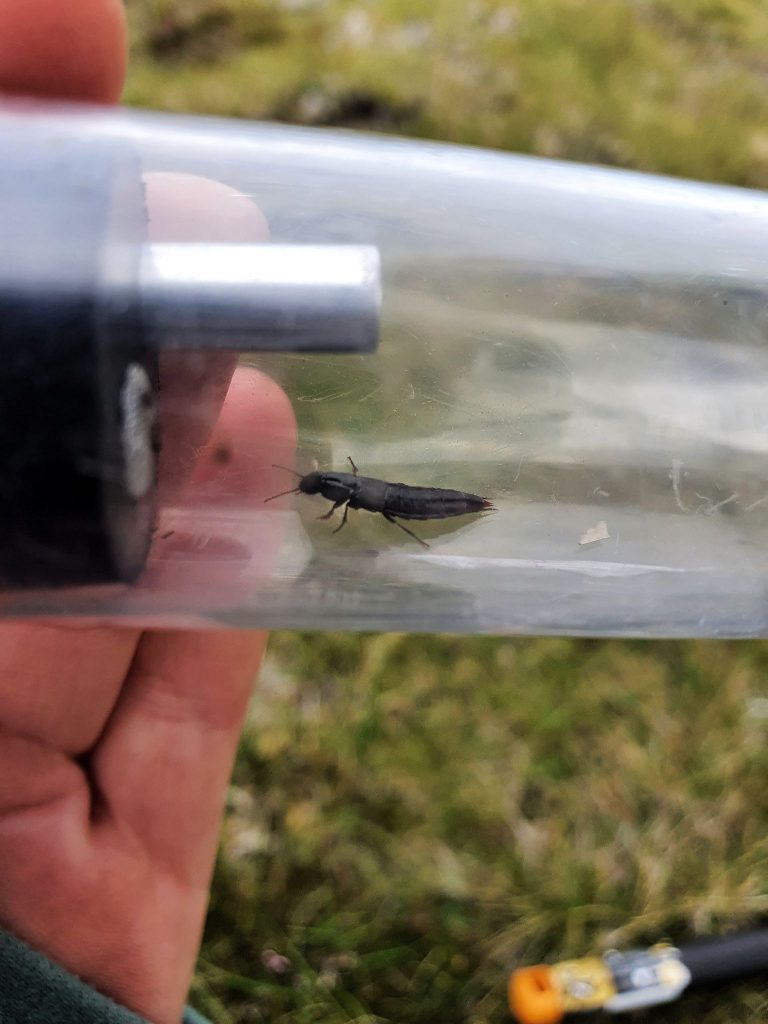
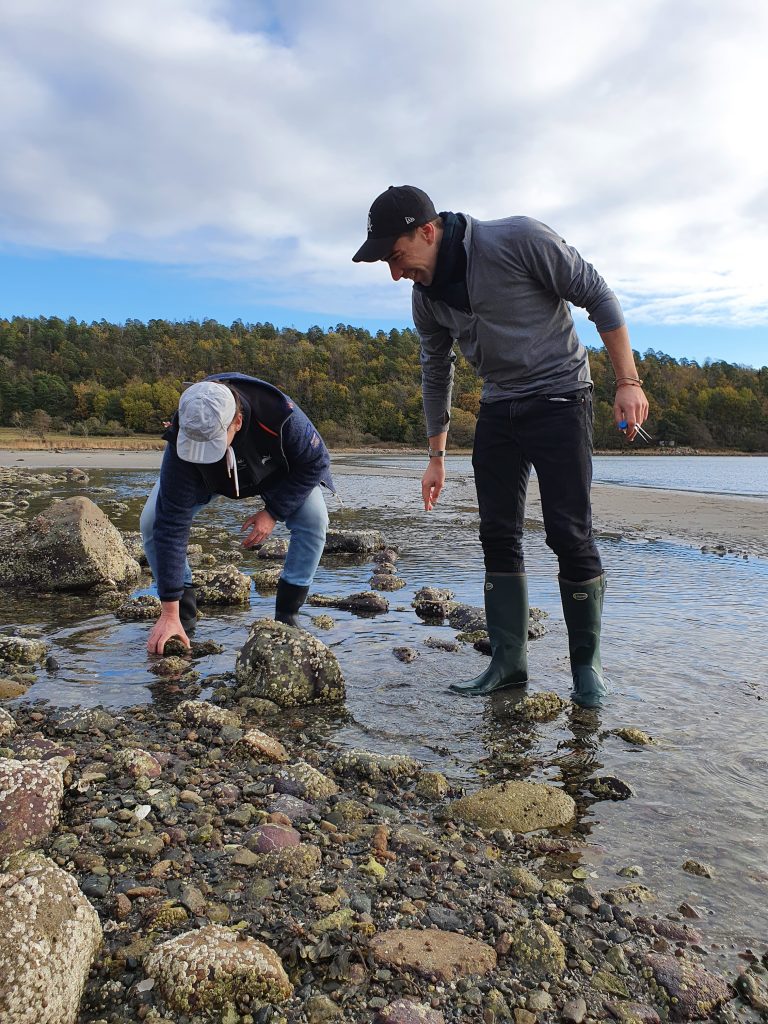
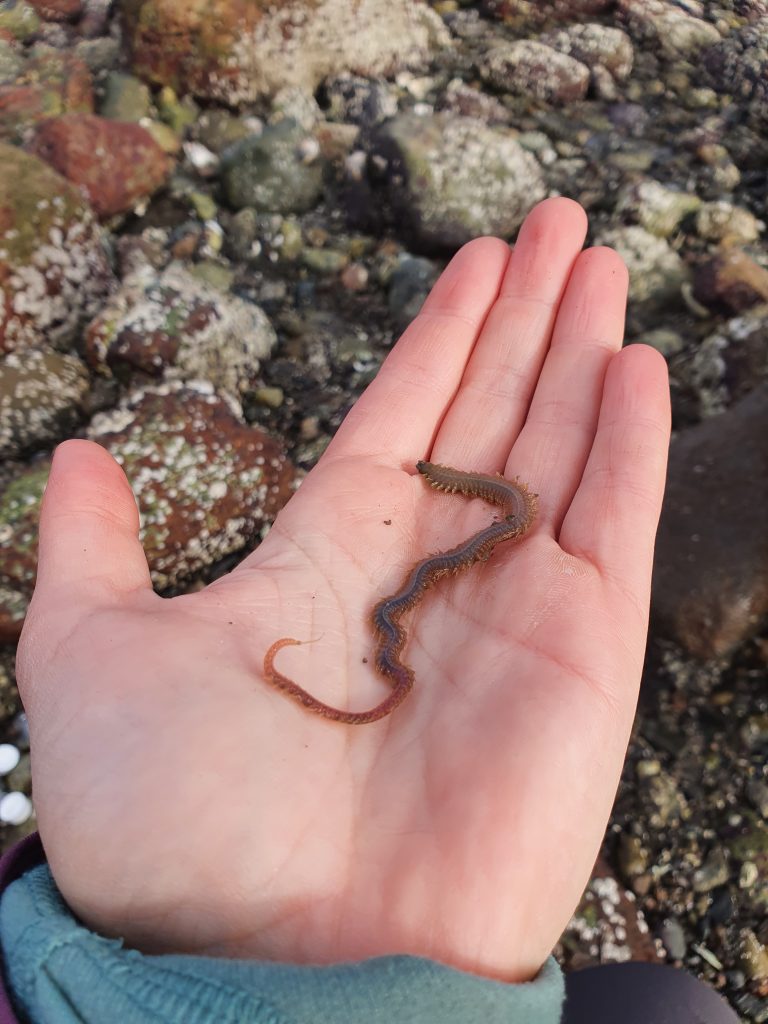
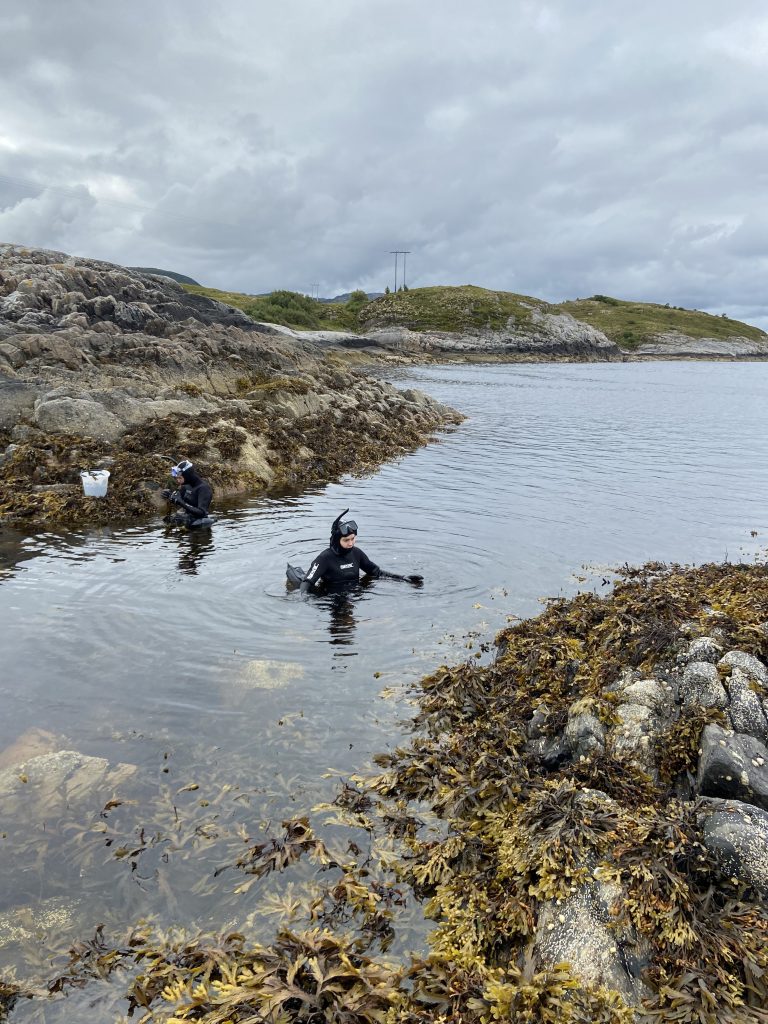
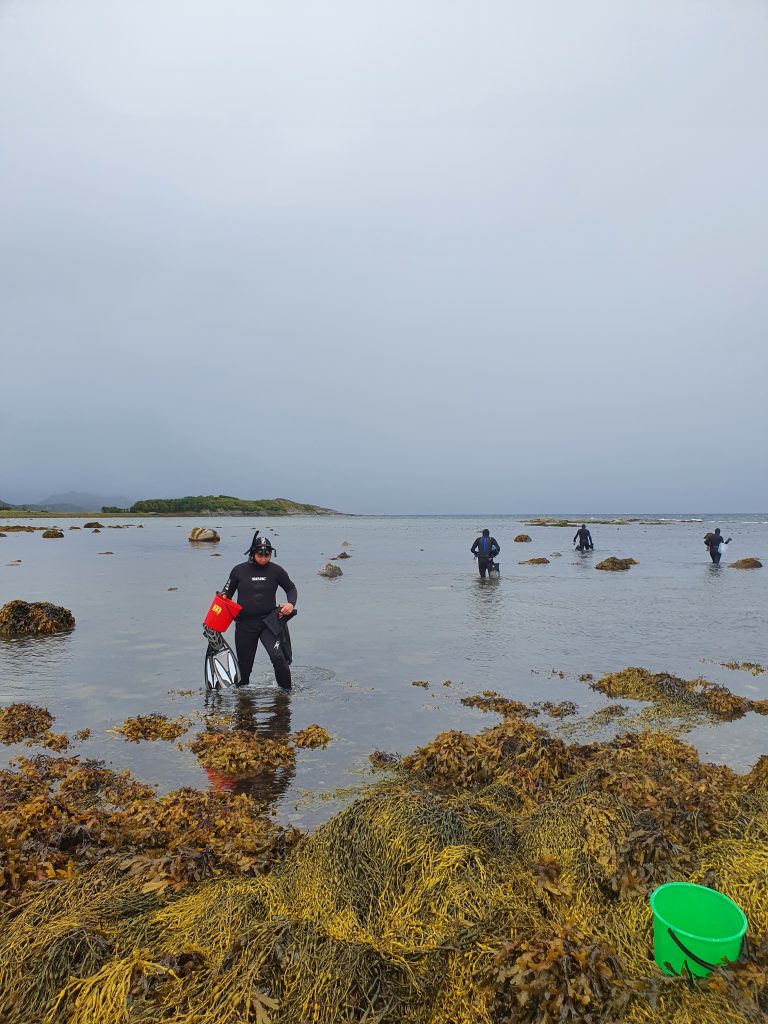
Gallery: Photos from various field trips. First row, number 1 and 2: Faroe Island for Vetles MSc-project, number 3 and second row number 1: Fieldwork for the Invertomics project at Jeløya, Moss, second row number 2 and 3: Field work for the Artsdatabanken project.
So, if you are considering applying to a PhD-position at NHM, but was wondering why it is four years, – now you know! One can really benefit from this duty work solution, and it gives you the opportunity to work with others besides your research group, learn new skills and expand your network.
![]()
